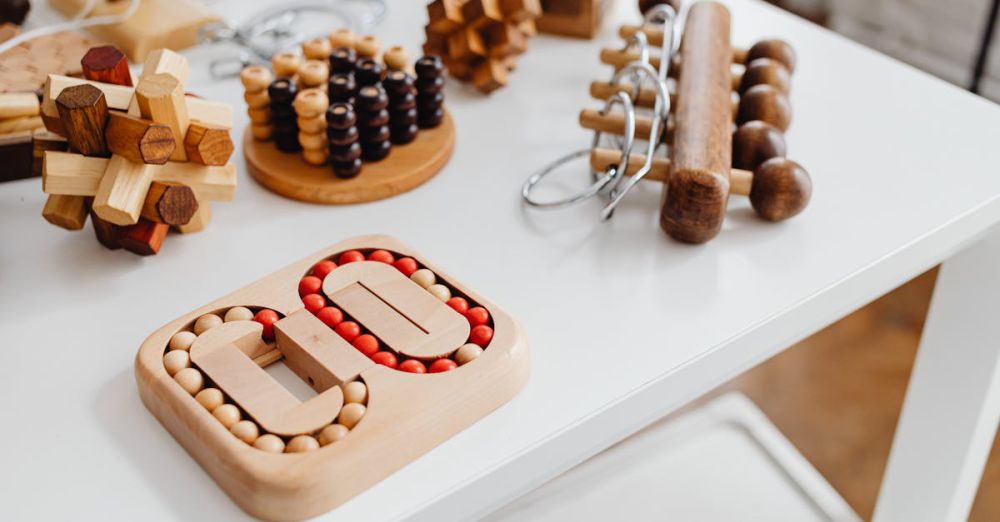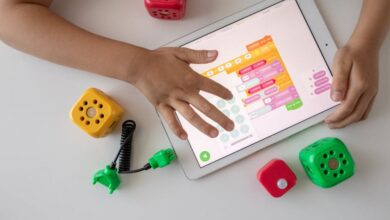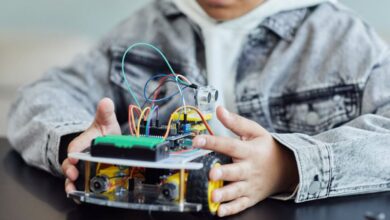How to Pick Educational Toys for Logical Thinking
Choosing the right educational toys for children can significantly influence their cognitive development, particularly in fostering logical thinking skills. As children engage with these toys, they learn to recognize patterns, solve problems, and develop critical reasoning abilities. However, with countless options available in the market, selecting the most effective toys can feel overwhelming. This guide aims to simplify the process by outlining key factors to consider when picking educational toys that promote logical thinking.
Understanding the Age Group
When selecting toys, it’s essential to consider the child’s age and developmental stage. Toys designed for infants focus on sensory exploration, while toddlers benefit from simple puzzles that encourage problem-solving. For preschoolers, look for toys that incorporate more complex challenges, such as building blocks or coding games. Each age group has specific cognitive milestones, and choosing toys aligned with these milestones can optimize the learning experience. Understanding these stages will help you select toys that are neither too easy nor too difficult, ensuring that children remain engaged and motivated.
Prioritizing Open-Ended Play
Open-ended toys foster creativity and logical thinking by allowing children to explore multiple outcomes and solutions. Items like LEGO sets, magnetic tiles, or building blocks encourage kids to think critically as they design and construct their own creations. These toys do not come with a fixed set of rules, enabling children to experiment freely and learn from their successes and failures. By prioritizing open-ended play, children develop resilience and adaptability, crucial components of logical reasoning.
Incorporating Problem-Solving Elements
Problem-solving is at the heart of logical thinking. When selecting educational toys, look for those that require children to engage in critical thinking to overcome challenges. Puzzles, strategy games, and brain teasers are excellent choices. These toys prompt children to analyze situations, devise strategies, and adjust their approaches as needed. For instance, a puzzle that requires spatial reasoning or a board game that involves planning several steps ahead can significantly enhance a child’s ability to think logically.
Encouraging Collaboration and Social Interaction
Toys that promote collaborative play can significantly boost logical thinking by introducing social elements to problem-solving. Games that require teamwork, such as cooperative board games, teach children to communicate their thoughts, listen to others, and negotiate solutions together. This social interaction not only enhances logical reasoning but also builds essential life skills like empathy and communication. Choose toys that encourage group participation to create an enriching environment for developing logical thought processes.
Evaluating Quality and Safety
While the focus is on enhancing logical thinking, quality and safety should not be overlooked. Ensure that the toys are made from durable, non-toxic materials, as children often explore their world through taste and touch. High-quality toys can withstand rough play, making them a worthwhile investment. Brands that prioritize safety and quality typically produce toys that are not only long-lasting but also designed to challenge a child’s mind effectively. Checking reviews and safety ratings can provide valuable insights into the best options available.
Exploring Technology-Integrated Toys
In today’s digital age, technology-integrated toys can also support logical thinking development. Educational apps, coding robots, and interactive games offer engaging ways for children to grasp complex concepts. However, moderation is key. Balance screen time with traditional toys to ensure a rounded approach to learning. Look for technology that encourages hands-on interaction and problem-solving rather than passive consumption. This balance promotes logical thinking while also allowing children to experience the benefits of modern educational tools.
Nurturing a Lifelong Interest in Learning
Fostering logical thinking through educational toys is just the beginning. The ultimate goal is to nurture a lifelong interest in learning. Choose toys that pique a child’s curiosity and invite exploration. By providing a variety of toys that challenge and engage, you’re laying the groundwork for a mindset that values problem-solving and critical thinking throughout life.
By carefully considering these factors, you can select educational toys that not only entertain but also enrich a child’s cognitive development. Engaging with well-chosen toys can spark a passion for learning that lasts a lifetime.







